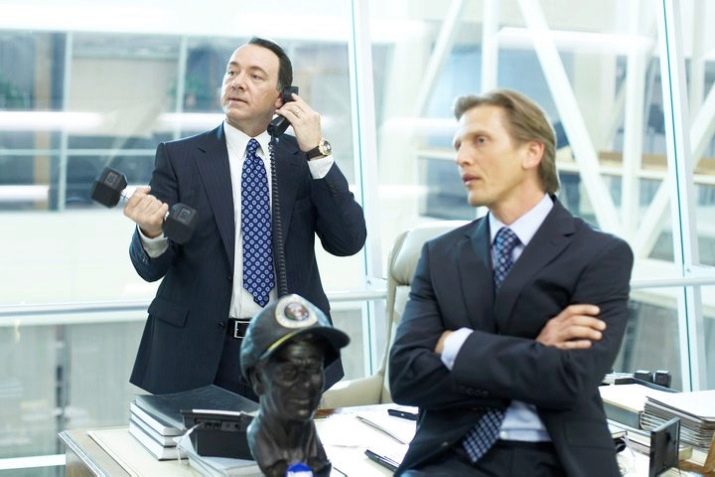GR manager: who is he and what does he do?

Our time gives rise to a large number of new, previously unheard-of professions. When mentioning the position of a GR manager, many cannot answer who he is and what he is doing. It's time to understand this topic and establish what kind of specialist he is.
Who is that?
GR-manager is, literally translated into Russian, just company employee for work with government agencies. The fact is that no company can do without close and increasingly active contacts with the state. At the same time, we also have to interact with large public organizations, with “caring people”. Only a company that will do this constantly and clearly will be able to achieve success. It has long become impossible to simply press and pursue one's own line by "stubborn pressure".
Only a clear negotiation strategy and the ability to find compromises help out. And here you can't do without specialists, who will be ready to conduct these very negotiations. In our country, GR managers began to appear not earlier than the mid-2000s. Any noticeable amount of them was required only in the early 2010s. Differences in the corporate culture and in the interaction of business with the authorities affected all the same.

Initially, it was believed that the best managers of this kind are former employees of government departments, because they perfectly know how everything is organized in the relevant areas, to whom with what request or wish you need to turn.
And - what is the difference between real and formal hierarchies in the end. Very large firms could afford the real luxury of inviting "liaison managers" from abroad.
The independent training of such specialists in our country began and not so long ago. Such managers not only communicate with representatives of state bodies themselves - they contribute to the effective organization of negotiations between these representatives and the management of the company. In many cases, communicating its position to officials is possible only through special seminars and conferences. All these events have to be carefully organized and taken into account in the process a huge number of nuances.
A successful GR manager is above all a very flexible and communicative person. He is obliged to use all available means and opportunities to defend the interests of the company... Sometimes you even have to go to negotiations in an informal setting. And here there is a very thin line separating legitimate lobbying from corruption schemes. The task of a professional is to achieve the set goal without crossing this line.

Pros and cons of the profession
The fact that there are not too many specialists in the field of GR-management is encouraging. The chances of being in a very good position (or one that will be good after a few years) is now very high. Of course, it all depends on the luck and "grip" of the candidate, on the ability to assess the merits of the vacancy and its prospects in the near future. In addition, the role of government regulation and interaction with government agencies will only grow. The authorities of various levels are a stable source of income.
Public procurement, especially in the field of defense and special orders, is practically a “gold mine”. They will be provided with money even when the situation in other areas is not so clear-cut. And therefore, the demand for people who are able to establish contacts with government customers will always be very important. And timely information about what changes are coming, what new regulations will appear, sometimes saves companies millions. But working as a GR manager has more than just positive aspects.

Any erroneous or poorly thought-out step means serious material and reputational losses. That's why managers will actually be in a constant stress, constant tension. You will have to carefully control every step you take, follow every word and gesture. The working day in such a profession, for obvious reasons, cannot be standardized. Sometimes you have to go on business trips, on business trips; even working in your city, you will need to prepare a lot of documents, and even more documentation will have to be studied.
It should also be understood that A GR manager in a number of companies secretly becomes a corrupt manager. Because of the fierce competition, sometimes the leadership is forced to take such extreme measures to advance its interests. And he doesn't care about the risk of an employee.
In case of refusal or some kind of passive evasion, he will be fired. There is no serious counterbalance to this, and usually it is necessary to decide which is more important.

Job responsibilities
The job descriptions for this specialty usually write that it means:
- protection and promotion of the common interests of the company in the activities of state bodies and municipalities;
- tracking the most significant events and events in public, state, city, regional life, culture and sports (and using them for the benefit of the company);
- tracking all fresh bills and their changes, regulatory and legal acts of the departmental and territorial level (with an assessment of their impact on business prospects);
- holding meetings and negotiations with representatives of government agencies in person;
- preparation of such meetings for the management of the company and its other representatives, which will be necessary;
- successful resolution of crisis situations and conflicts with government authorities;
- maximum familiarization of state bodies and their leaders, in particular with the activities of the company, with its capabilities, achievements and long-term plans;
- maximum use of legal methods of obtaining state, municipal and departmental contracts.

Requirements
Skills
It is not so easy to become one of the GR-managers, as the brief description of their activities already shows. Even beginners are expected to have very serious business and practical qualities. It is absolutely impossible to get this job without a higher education. It is imperative that you clearly understand what the company specializes in, what are its advantages and disadvantages in comparison with competitors, and how, through interaction with the state, to strengthen the advantages and weaken the disadvantages. Sometimes, as it grows, the business becomes relevant for the company lobbying in international organizations and government agencies of foreign states.
This also falls on the shoulders of the GR manager, who is therefore simply obliged to develop in these areas. It seems that very soon people without knowledge of foreign languages will no longer be hired for such a position. Much also depends on the ability to conduct business correspondence, draw up documents. It is imperative - by the very essence of the profession - to clearly understand how state bodies at all levels work and work. A plus for the candidate will be idea of public organizations (at least the main ones in the country and the region) and an understanding of how they can help the company.
Requirements for a GR manager also include the ability to analyze consumer preferences and market situations. This will make it possible to establish contacts with the authorities proactively, anticipating what will be needed in a few months or even years. It is imperative to anticipate the efforts of competitors - and try to thwart them. Almost all companies select those candidates who have worked in the civil service for at least a year. Experience of work in public organizations of any kind is also encouraged.

Qualities
Of course, the personal qualities of a government relations manager are also important. The main requirement in this regard is sociability, because sometimes it takes more than one hour to negotiate, but over several days or even weeks. The manager is obliged to demonstrate leadership skills, try to play the "first fiddle" in dealing with government officials. This is not about ordinary manipulation or "headlong pressure" - this is a whole art of how to push the interlocutors to the desired solution.
Gr-manager is also required proactive, because no one can tell him during the negotiations which move to make, what can be offered to the interlocutors and what not. The ability to get out of awkward situations without loss is also very important. He will find himself in such a position only a patient, hardy and disciplined person with maximum attention to detail. Such work is accompanied by constant stress, and therefore the stability of the nervous system is extremely important.
Plays a huge role strategic thinking... At the same time, one must also be able to switch quickly from the strategic to the "tactical" mode in order to prevent a mismatch between them. Each situation is unique, and therefore it will take the ability to quickly delve into the essence of things.
There is nothing to do without oratorical skills in such a profession. And, of course, it is necessary to take into account the peculiarities of the political situation in Russia (or in another country where you have to work).

Education and career
There are still a few institutions in Russia that train GR managers. Predictably, they included the famous RANEPA. You can also try your luck at:
- Financial and Economic University of Moscow;
- University of Tuva;
- St. Petersburg Trade Union University;
- Kemerovo State University.
We'll have to take exams not only in Russian and mathematics, but also in social studies. Entering the specialty "foreign regional studies", you will also need to pass a test in a foreign language (optional). After graduation, it is recommended to work in government agencies. An ideal foothold is the apparatus of the federal government and individual ministries (departments), including at the regional level.
Best of all are the ministries of finance, economic development, industry and trade.

Also suitable:
- chambers of commerce and industry;
- positions in PR departments;
- antimonopoly service;
- Rospotrebnadzor;
- Rostekhnadzor;
- Rosprirodnadzor;
- Rosnedra;
- Rosleskhoz;
- Rosvodresursy;
- Rosrybolovstvo;
- Ministry for the Development of the Russian Far East;
- Rosfinmonitoring;
- state corporations and off-budget funds;
- administrations of regions, cities and districts.









